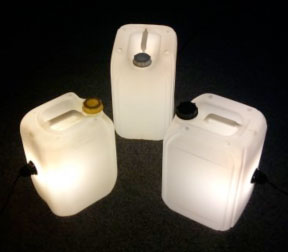How your hotel can help reduce the impact of plastics on the environment
By 2050, if we don’t make considerable changes, there will be more plastic in the world’s seas by weight than there are fish.
By Lindsey Hall
A global impact
Plastic is the 21st century’s go-to material, with its wide range of functional properties and low production costs. Its usage has increased twenty-fold in the past half century and is predicted to double again in the next 20 years. (World Economic Forum, Ellen MacArthur Foundation and McKinsey & Company, The New Plastics Economy – Rethinking the future of plastics (2016))
As our appetite for plastic continues to increase, so too does its impact on the environment. If usage grows as expected, the emission of greenhouse gases by the plastics sector will account for 15% of the global carbon budget by 2050, up from 1% today2.
Due to waste mismanagement and illegal tipping, 8 million tonnes of plastics end up in our seas every year. That’s equivalent to 1 dumpster-load of plastics every minute. If we carry on as normal, by 2050 it will be the equivalent of four dumpster-loads per minute, by which time will be more plastic in the world’s seas than fish (by weight)3.
So how can your hotel reduce the amount of plastic waste that it produces and limit its impact on the environment?
Ensure all plastics used on site are collected for recycling
Consider where plastic waste is produced in your hotel and ensure there are sufficient collection facilities at each of these. Besides the kitchens, bars and restaurant clearing points, where else would benefit from a recycling bin? If you don’t provide guestrooms with separate bins, could your housekeeping trolleys be adapted to hold a recycling bag so that staff can collect the bottles left by guests on departure?
A waste audit of each department of the hotel can shed light on where plastics are not being captured for recycling, helping you to effectively plan improvements.
Talk to your waste contractor
Ask them what happens to the materials that you give them for recycling. Your waste contractor has a duty to provide you with information on the destination of all the materials they collect from you. Are there opportunities to find closed loop* solutions to maintain the value of your plastics and enable them to be recycled again in the future?
Review your purchases
Are all cleaning products bought in concentrate? Are all of your deliveries supplied in bulk where appropriate? Can you increase the proportion of fruit and vegetables that are sourced from local producers?
Considerations such as these reduce the volume of plastic packaging that enters your property, moving your waste management strategy up the waste hierarchy from focusing simply on recycling what you produce, to reducing the amount of material that you consume in the first place.
Consider biodegradable packaging
Food contamination is one of the major reasons why plastics sent for recycling are not actually recycled. This can mean more than just removing the offending article from the recycling line: generally the food contamination will also reduce the value of the surrounding recycling, leading to paper and other materials being disposed of as waste rather than being recycled.
Where packaging is likely to become food contaminated (e.g. individual portion containers of salads, desserts, fast food items etc.), substituting plastic for biodegradable packaging and disposing of it along with food waste is a much better solution.
Stop using tiny plastic containers!
Complete a review of how you provide products such as condiments, coffee and toiletries to your guests. If any of these are currently in miniature bottles, individual sachets or capsules, identify possible ways to substitute these out for refillable, reusable alternatives. This is a highly visible and effective way of reducing the environmental impact associated with plastics, and of reducing the wastage associated with throwing out half used bottles of toiletries.
Luxury hotel guests expect to see environmental practices in place, so make sure you get noticed for the good work you do in this area.
Reuse items in inventive ways
Could old plastic jerry cans make imaginative outside lamps? What about using wine corks to create a wall mural? The primary goal here isn’t about reducing the amount you recycle (although it helps!), but more to show that you consider the potential value of all materials, before you consider them as a waste. It also helps to enlighten guests about the potential to reuse items within their own homes, spreading your positive impact beyond the hotel boundaries. And it can add a touch of quirky and creative style to your hotel.
The importance of communication
Whilst all of these changes can help to make your hotel a more eco-responsible establishment, it’s vital to accompany them with good communication: both with your staff and with your guests. This will ensure that your staff follow the new procedures, and that guests understand the value of what you’re doing and perceive it as having a positive impact upon their stay.
How can we help?
Green Steps are specialists in developing effective waste management plans that consider all materials produced on site and that incorporate staff training and guest communication. We can help your hotel to reduce its impact on the environment, reduce your waste bills, and increase guest loyalty.
Contact us today for a free Skype consultation.
2,3 World Economic Forum, Ellen MacArthur Foundation and McKinsey & Company, The New Plastics Economy – Rethinking the future of plastics (2016)

Share
ShareTweetPin it+1